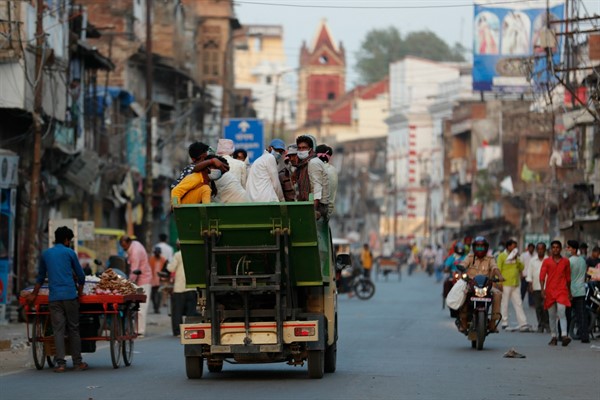The coronavirus pandemic, at least in its first wave, is not expected to peak in South Asia until July. But countries in the region, which have yet to witness a significant outbreak along the lines of China, the United States or the hardest-hit parts of Europe, are already loosening their lockdowns. The pandemic is spreading unevenly across the world for reasons that are not always entirely clear, so it is difficult to predict the public health impact of easing lockdowns. But what is clear is that the pandemic will leave South Asia poorer, less democratic and more illiberal. And China could see net strategic gains from that fallout.
South Asian economies had seen some of the world’s fastest growth in recent years, but there are also high concentrations of extreme poverty in the region. Poor or near-poor residents of India and Pakistan were already suffering from a series of regressive economic policies, so for them, the pandemic is the second of a one-two punch. Weak social safety nets throughout South Asia will be inadequate to cushion COVID-19’s impact.
Lower- and middle-class Indians continue to reel from Prime Minister Narendra Modi’s disastrous demonetization program, which pulled 86 percent of the country’s currency out of circulation in 2016, and a new consumption tax that went into effect in 2017. The two initiatives hit small and medium enterprises hard, sending unemployment to a 45-year high last year. In the last quarter of 2019, before the effects of the coronavirus were widely felt, economic growth in India plunged to its lowest rate in over a decade. Much like demonetization, Modi’s announcement in March of a strict lockdown to prevent the spread of COVID-19 was abrupt, with only four hours’ notice before it went into effect. That triggered a mass exodus of migrant laborers who had lost their jobs in cities, many of whom are still traveling hundreds of miles back to their villages on foot.

